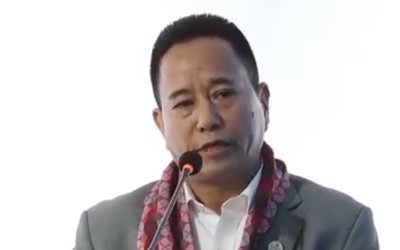More on News





The brouhaha surrounding the Bilateral Investment Promotion and Protection Agreement (BIPPA) between Nepal and India signed during Prime Minister Baburam Bhattarai’s October visit to India presented a spectacle true to the form of present-day Nepal. From a PhD-SLC topper head of government apparently failing to appreciate the substance and implications of the pact, to a lack of open debate before its signature, to coverage by the mainstream media in a consent-manufacturing mode bent on projecting the pact as the sine qua non for attracting Indian investment.
The national treatment and most-favoured-nation (MFN) treatment provisions in the BIPPA reinforce preferential treatment for Indian investors, who in practice are already treated on a par with domestic investors and enjoy more rights than do other foreign investors, thanks to the 1950 Treaty. A treaty that the Maoists, with “intellectual” fire-power from Bhattarai, once upon a time wanted to be scrapped but now are willing to accept in an adjusted and updated form. Nepal’s strategy should be to treat all foreign investors alike, regardless of their nationality.
The provision on compensation for losses (Article 6) requires each government to compensate the investors from the other country for any losses they incur due to war, state of emergency, insurrection or riots on a national and MFN treatment basis. This is, for practical purposes, more than national treatment, unless the Nepal government decides to compensate domestic investors similarly. Replacing “civil disturbances” with “riots” was trumpeted—with cheerleaders in the media—as a sterling achievement of the Nepali side, when in fact it does not require a brilliant lawyer to prove the equivalence of the two in many a circumstance, during international arbitration. A government of a least-developed country in perennial transition that is unable to maintain law and order has the cheek to pledge compensation to foreign investors for losses from its absence!
Media reports had it that the BIPPA would allay India’s concerns about the disruption of Indian investment projects, including the Upper Karnali hydropower project. The pact will not be able to address concerns related to disruption due to, say, load shedding, militant labour unionism, strikes, shutdowns, extortion etc, which are major concerns of all investors, domestic and foreign. Some “leading” dailies reported that whether to provide compensation for losses arising from incidents like strikes and shutdowns will be decided by a joint industrial committee comprising both Indian and Nepali businesspeople. The biased reportage was riddled with contradictions: the pact will encourage Indian investment by addressing security concerns; to show that Nepal has not given away much through the agreement, it is emphasized that compensation is confined to losses arising from war, emergency, insurrection and riots (thereby contradicting the hype about the agreement being key to attracting Indian investment into Nepal); and then it is let on that a committee shall decide on compensation for other types of losses. Since the agreement makes no mention of such a committee, what led the media to refer to it? Whose wishes were they articulating? Was there a letter of exchange to that effect?
Worst of all, the BIPPA could entrench a patently anti-development policy. Choice hydropower projects have been awarded to foreign investors to be built as export-oriented ventures even as the country is starved for electricity. There have been protests, including by a faction of the Maoists, against such projects. The means of protests have been violent at times, no doubt regrettable. But the policy that prompted such protests is also condemnable. The provision of compensation in the BIPPA gives the government a veneer of legitimacy in the form of “international obligation” to use force against such protests and/or use the state treasury to compensate foreign investors affected by the protests although such investment is not in the national interest in the first place. It may not be difficult to interpret the protests and associated vandalism as rioting. Or perhaps it is the putative joint committee that is to decide on compensation should they not be interpreted as rioting. The justification that the BIPPA will help bridge the huge trade deficit with India, which stood at 200.87 billion rupees in the first 11 months of FY 2010/11, is absurd. The immediate focus should be on channelizing all potential domestic resources, including remittances, into the productive, tradable (export and import-substituting) sector. Where foreign investment is essential (e.g., huge hydropower projects) it must be guided into priority sectors and uses (e.g., electricity for domestic use, not exporting away the multiplier benefits). Besides restoring law and order, developing hydropower for domestic use (load shedding is cited as the biggest constraint in business climate surveys), addressing other supply-side constraints, securing the removal of market access barriers faced in India and elsewhere, and obtaining improved transit facility are critical to increasing exports to India and beyond.
What is the PM’s position on the export-orientation of the hydropower policy? The media otherwise critical of the Maoists portray him as a pragmatist. There is a thin line between pragmatism and opportunism. Once upon a time he used to write fiery articles about how Nepal was forced into underdevelopment courtesy of the core-periphery relationship with its neighbour. Can he explain how exporting cheap hydropower can spur economic development in Nepal, which in his considered view is essential to strengthen nationalism? He reportedly broke down when visiting his alma mater, JNU, and said that he is what he is because of JNU, where he learnt Marxism. Does JNU Marxism mean keeping one’s own country underdeveloped while allowing its resources to be exploited by its neighbour—if the student happens to be a Nepali? Did he miss an opportunity to tell leftist gurus at JNU and CPI(M) comrades not to demonstrate “hollow” nationalism by protesting against Indian trade liberalization moves, including its free trade agreement with the European Union? It seems that the Marxism taught at JNU is to be interpreted differently for different folks—one version (pragmatist) for Nepal and the other for serving the interests of its motherland.





